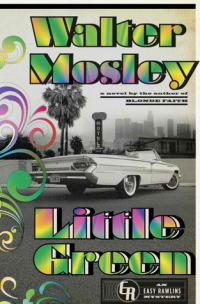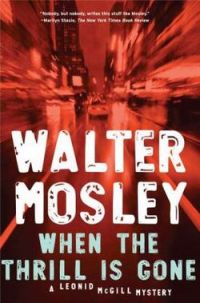And Sometimes I Wonder About You by Walter Mosley
 Monday, May 18, 2015 at 10:32AM
Monday, May 18, 2015 at 10:32AM 
Published by Doubleday on May 12, 2015
Walter Mosley has a unique ability to see the uncommon in common people, to perceive the humanity to which inhuman circumstances give birth. His characters are damaged and betrayed. They have been abused and they have been abusive. They often live on the fringes of society, yet they retain their dignity, their wisdom, and their strength. They reinvent themselves every day because that's what life is -- a process of reinvention. Few writers convey that as well as Mosley.
When a beautiful woman walks into Leonid McGill's life (or, at any rate, sits next to him on the train), he knows he is in for trouble. Five minutes later, Marella Herzog owes him $1,500, his fee for protecting her from an attacker who was supposedly sent by her former fiancé. Throughout And Sometimes I Wonder About You, McGill ruminates about the powerful women who dominate his life, including the wife who is receiving convalescent care, the dissatisfied part-time lover, the secretary who is finding ways to recover from a horrific childhood, and now Marella.
Also playing a vital role in the story is McGill's son Twill, who has taken on a private investigation of his own. Of course, his activities cause problems for McGill. And then there's Hiram Stent, a vagrant whose case McGill turns down until, inevitably, his sense of justice compels him to look into Hiram's problem by finding a missing woman. In the time-honored tradition of PI fiction, McGill is soon working for free, because helping those in need is the right thing to do. Before the end of the novel, McGill's sense of justice has made him the target of three groups of people who want to kill him. In other words, a typical day in McGill's life.
The family element -- not just with Twill, but also with McGill's absent father, whose absence ends in this novel -- is just as strong as the larger plot threads. As he so often does with consummate skill, Mosley weaves it all together to create a tight, fast-moving story that works as a thriller, as a family drama, as an unconventional love story, and as a psychological portrait of a man who is struggling to come to terms with his past and to invent a better future.
RECOMMENDED



